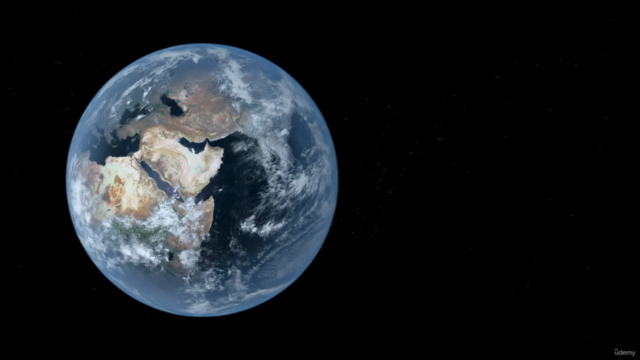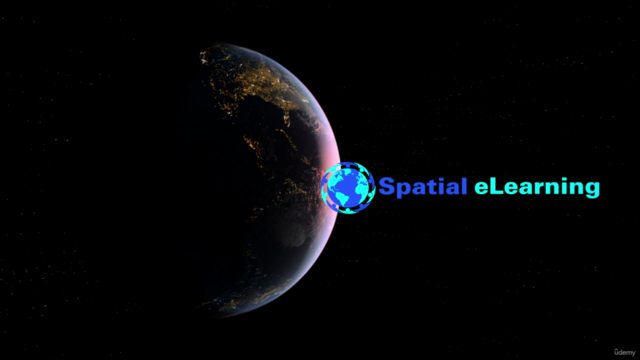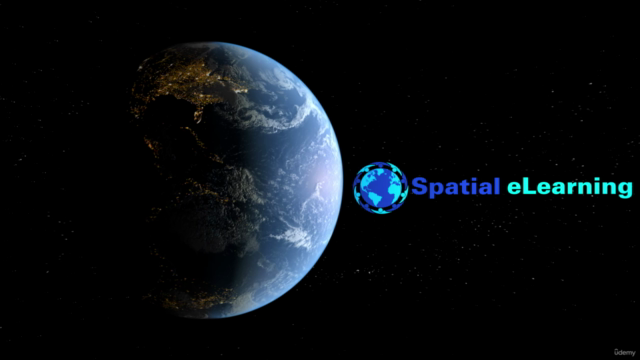QGIS and Google Earth Engine Python API for Spatial Analysis

Why take this course?
🚀 Course Headline:
Unlock the Potential of Big Spatial Data with Confidence! 🌫️🌍
Course Title: QGIS and Google Earth Engine Python API for Spatial Analysis
Harness the Power of Big Spatial Data with Earth Engine Python API and QGIS 🛰️💻
Are you eager to leverage the capabilities of Python to access satellite sensors through the Google Earth Engine Python API? Do you wish to master the QGIS Earth Engine plugin for seamless spatial analysis? Are you looking to visualize and analyze vast amounts of satellite data with ease?
If your answer is a resounding "Yes!" to any of these questions, then our comprehensive course, taught by Dr. Alemayehu Midekisa, is the perfect fit for you! 🎓✨
Course Description:
Enroll in my specialized QGIS and Google Earth Engine Python API for Spatial Analysis course today and embark on a journey to become proficient in handling big spatial data. I am excited to guide you through hands-on training using example datasets, sample scripts, and real-world applications. With this course, you will:
- Install QGIS and Earth Engine plugins with ease.
- Gain direct access to satellite data through the Python API, unlocking a world of possibilities in spatial analysis.
- Learn to visualize big data in various formats and extract valuable insights.
Course Outline:
This course is meticulously structured to ensure you grasp each concept thoroughly, with topics that include:
📌 Introduction to Earth Engine Python API: Get familiar with the basics and understand how to navigate this powerful platform.
-
Install the QGIS Earth Engine Plugin: Learn the step-by-step process to integrate Earth Engine with QGIS on your system.
-
Load Landsat Satellite Data: Discover how to access and utilize satellite imagery for your analysis.
-
Cloud Masking Algorithm: Master techniques to remove clouds from your datasets for accurate analysis.
-
Calculate NDVI (Normalized Difference Vegetation Index): Learn how to assess vegetation health across different regions.
-
Access Sentinel, Landsat, MODIS, CHIRPS, and VIIRS data: Explore a variety of satellite datasets and understand their applications.
-
Export images and videos: Capture your analysis in various formats for further use or presentation.
-
Process image collections: Learn to work with large sets of imagery efficiently.
-
CART classification: Implement supervised classification methods to categorize land cover types accurately.
-
Clustering Analysis: Employ clustering algorithms to uncover patterns within your data.
-
Linear Regression: Use regression techniques to model relationships between variables in spatial data.
-
Global Land Cover Products (e.g., NLCD, and MODIS Land Cover): Understand the role of these products in large-scale land analysis.
Learn with Open-Source Tools:
One of the most significant advantages of this course is that it leverages entirely open-source tools—the Google Earth Engine Python API and QGIS. This means no costly software investments are necessary! All sample data, scripts, and resources will be provided to you throughout the course, ensuring a seamless learning experience. 🧗♂️💰
Get Started Now!
Don't miss out on this opportunity to master spatial analysis with Python, QGIS, and Google Earth Engine. Click the enroll button today and take your skills to the next level! 🚀📚
Course Gallery




Loading charts...